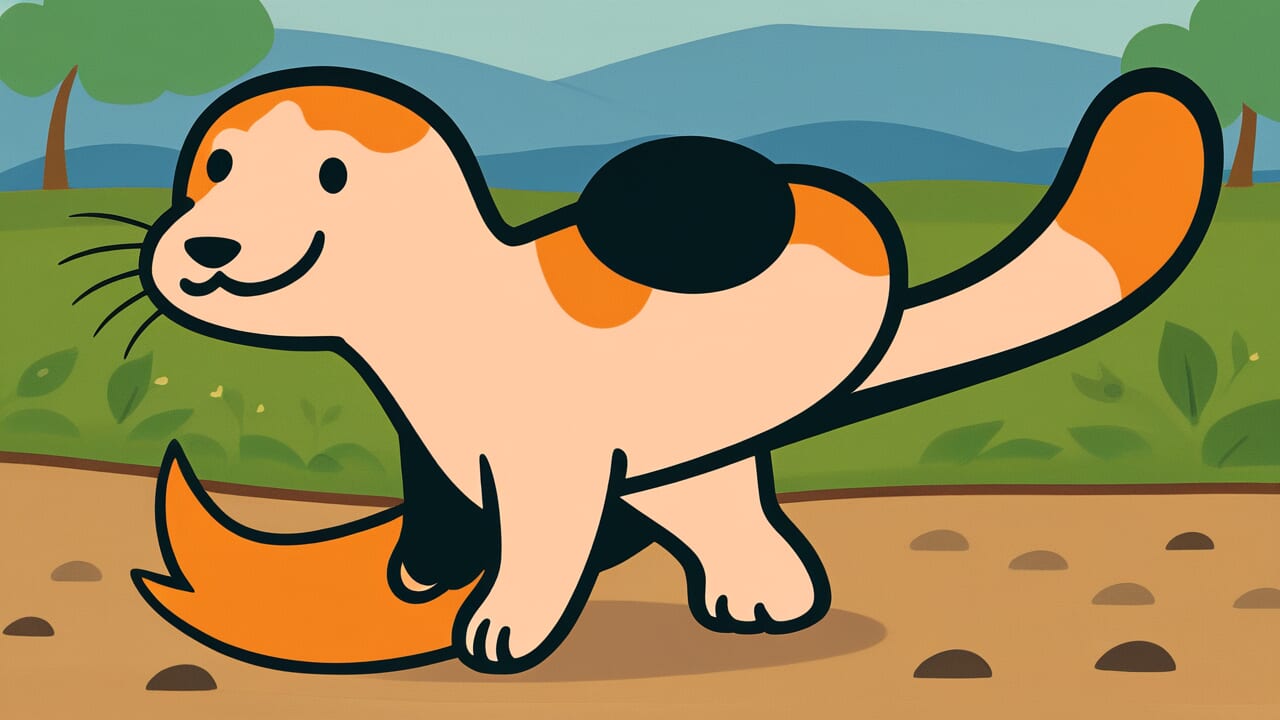How to Read “When the tail is too big, it cannot wag”
Bidai nareba furuwazu
Meaning of “When the tail is too big, it cannot wag”
“When the tail is too big, it cannot wag” means that when the peripheral parts grow too large, you lose control of the whole.
In organizations and groups, parts that should be subordinate sometimes gain too much power. When this happens, the central authority can no longer control them. Order breaks down.
This proverb applies to many situations. It describes company branches and departments, regional organizations within a nation, or even children’s positions in families.
When balance collapses and the periphery becomes bloated, the normal chain of command stops working. The entire organization risks falling into chaos.
Today, people use this saying when a subsidiary grows larger than its parent company. It also applies when contractors start controlling their clients instead of serving them.
Origin and Etymology
This proverb likely comes from the ancient Chinese text “Records of the Grand Historian” (Shiji). The text discusses the balance of power in nations and organizations. The expression used there eventually traveled to Japan.
“Bidai” literally means “big tail.” The character “furu” in “furuwazu” means to shake or move. So the phrase describes an animal whose tail has grown too large for its body to wag freely.
The expression emerged from ancient China’s political reality. Regional lords and warlords sometimes gained too much power. When this happened, the central government could no longer control them. The nation risked splitting apart.
The saying compared this danger to an animal’s body and tail. It was a warning everyone could understand.
In Japan, people used these words during the Warring States period and the Edo period. They warned against retainer groups and branch domains gaining excessive power.
The proverb has been passed down as universal wisdom. It teaches the importance of power balance in organizations.
Interesting Facts
The character “furu” (掉) in this proverb is rarely used in daily life. It’s quite unusual. In Chinese readings, it’s pronounced “tō” or “chō.” It means to shake or sway.
In modern Chinese, “掉” often means “to fall.” But in classical Chinese, its main meaning was “to shake.”
From a zoological perspective, animals with tails too big to be useful barely exist in nature. During evolution, individuals with poor body balance couldn’t survive.
This proverb uses an unnatural state that wouldn’t occur in nature. By doing so, it emphasizes the distortion within organizations.
Usage Examples
- That branch’s sales have exceeded headquarters, creating a “when the tail is too big, it cannot wag” situation
- We spent too much on the children’s lessons, and now it’s “when the tail is too big, it cannot wag”—our household budget can’t keep up
Universal Wisdom
“When the tail is too big, it cannot wag” teaches us a fundamental truth about human society. Everything needs proper balance and order.
Why do people make the periphery too large? They become captivated by immediate growth and expansion. They lose sight of overall balance.
When building organizations, people initially strengthen the center. But once success begins, they keep expanding the peripheral parts. They create new departments, start new businesses, and hire new people.
Each decision seems right at the time. But suddenly they realize the center can no longer control the periphery.
This phenomenon connects closely to human desire. The urge to be bigger, stronger, and richer sometimes destroys overall harmony.
Ancient people learned this truth through the rise and fall of nations. They repeatedly witnessed powerful regional forces threatening the center. They saw nations split apart again and again.
This proverb survives today because humans are fundamentally “beings who easily lose balance.” We constantly waver between the desire for growth and the need to maintain order. These two demands contradict each other.
When AI Hears This
Control engineering has a concept called the “controllability index.” It equals “the controller’s power” divided by “the resistance of the object being moved.” When this number drops below 1, the system becomes theoretically uncontrollable.
A fish’s tail fin makes this easy to understand. When the tail’s mass doubles, the moment of inertia increases by the square of the distance. You actually need four times the force.
As the tail grows larger, the force needed for control increases exponentially.
NASA constantly monitors this ratio in spacecraft design. When adding a new module to the International Space Station, they calculate precisely whether the attitude control thrusters can control the entire structure.
If the peripheral mass grows too large, a critical point arrives. Even when the central computer commands “rotate,” physical rotation becomes impossible.
What’s interesting is that this critical point arrives suddenly. The transition from controllable to uncontrollable doesn’t happen gradually. It switches like a light.
When large corporations suddenly lose decision-making ability, perhaps their peripheral departments have grown too large. They’ve crossed this critical point.
Ancient people captured this nonlinear turning point accurately with the word “cannot wag.” They did it without any mathematical formulas.
Lessons for Today
This proverb teaches modern people that growth and expansion aren’t the only measures of success. We constantly seek “bigger” and “more.” But what truly matters is knowing the range you can manage.
In work, hobbies, and relationships, spreading yourself too thin makes everything half-hearted. Before starting a new project, consider whether you have the capacity to manage it.
Deepening relationships with truly important people may enrich your life more than increasing your social media followers.
The same applies to business management. Before increasing branches or diversifying to boost sales, assess whether your headquarters functions can support it.
A small but well-controlled organization is stronger than a large but chaotic one.
What matters is operating within a range where you can see the whole picture. That’s the path to sustainable growth.



Comments